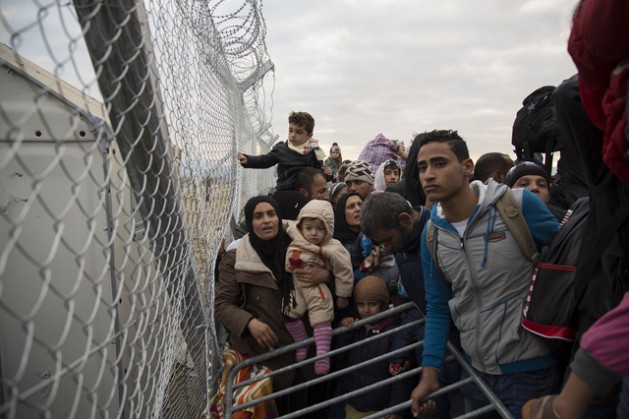By Andrew MacMillan and José Graziano da Silva
José Graziano da Silva is Director-General of the Food and Agriculture Organization of the United Nations (FAO). Andrew MacMillan, former Director of Field Operations.

Refugees at the Greek-Macedonian border near the town of Idomeni. Credit: Nikos Pilos/IPS
- European nations from which millions once left to escape hardship and hunger – Greece, Ireland, Italy – are today destinations for others doing the same.
Many people are on the move. The really big numbers relate to rural-urban migration in developing countries. In 1950, 746 million people lived in cities, 30 percent of the world’s population. By 2014, urban population reached 3.9 billion (54 percent).
By comparison, about 4 million migrants have moved into OECD countries each year since 2007.(*) And 60 percent of Europe’s 3.4 million immigrants in 2013 came from other European Union member states or already held EU citizenship. Those from outside amounted to less than 0.3 percent of the EU’s population.
Conflicts in Afghanistan, Iraq and Syria, along with the breakdown of law or of freedom in Libya, Eritrea, Somalia and South Sudan, have catalyzed a surge in asylum seekers – whose numbers climbed to 800,000 in OECD countries alone in 2014 and who, under international law, must be protected.
Growing apprehension in some recipient countries has led to calls for fences and walls to cut migrant flows. Barriers, however, are costly, can be circumvented, and are all too reminiscent of the restrictions on liberty from which many migrants are seeking refuge.
The urge for a better life is the main driving force for migration, both local and international. People are “pulled” by the belief that better prospects exist elsewhere. As mobile phones and internet access have reached the remotest corners of the world, such beliefs have proliferated.
